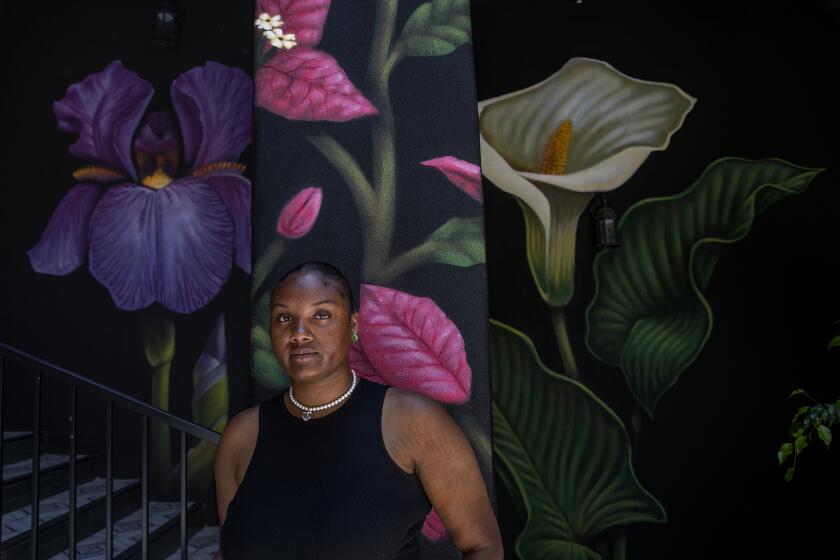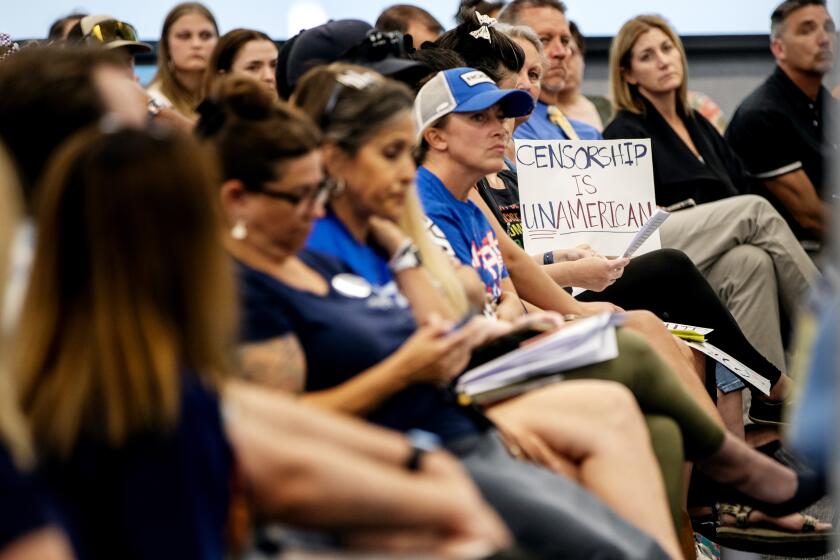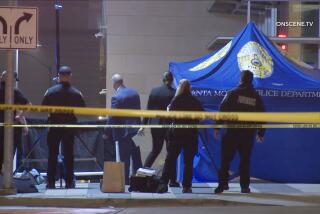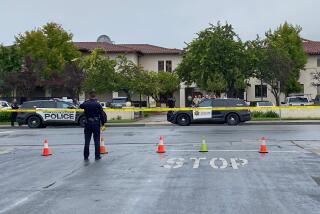Santa Monica Councilmember Phil Brock attacked by a man on Third Street Promenade
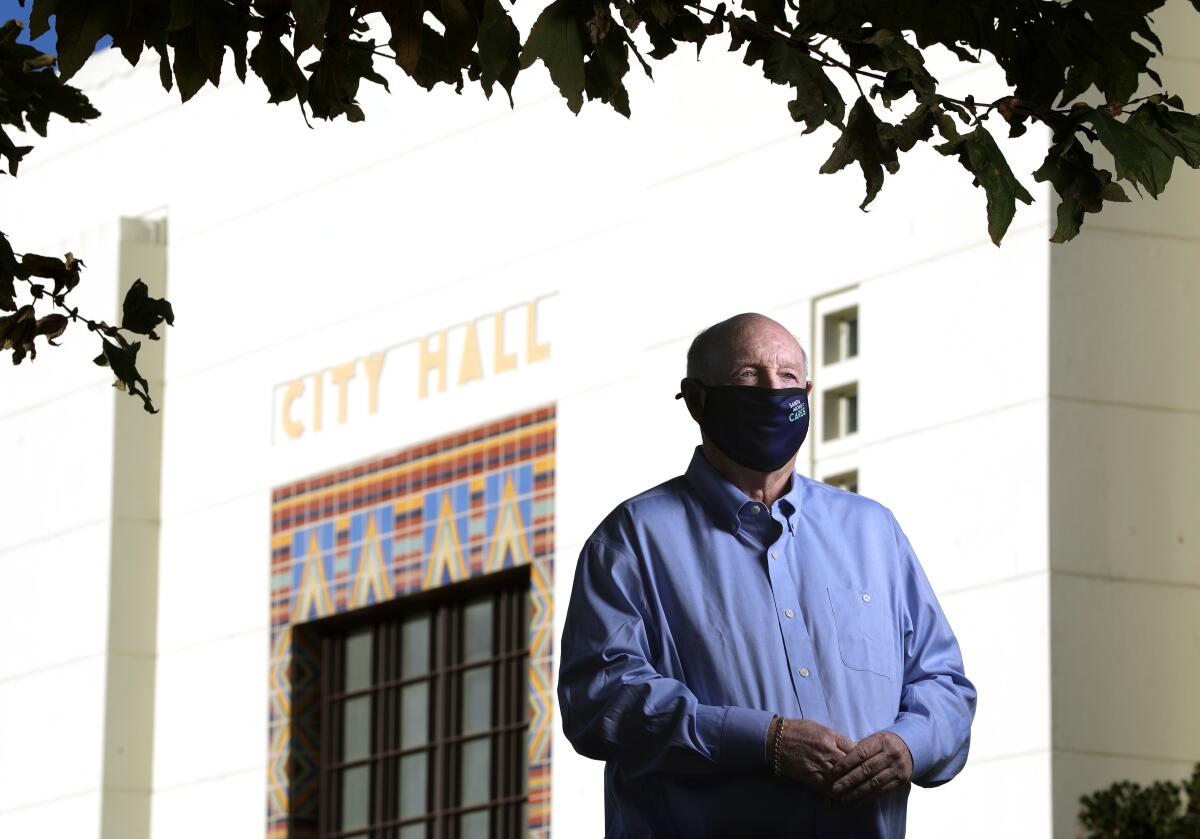
Santa Monica City Councilmember Phil Brock was attacked over the weekend in downtown Santa Monica by a man who was later arrested on a battery charge.
Brock told The Times that on Saturday about 2:45 p.m., he was walking north on the Third Street Promenade with his partner, Kathryn Boole, when he saw a man tearing down signs from a vacant storefront and throwing the paper on the ground.
The Santa Monica Police Department confirmed the man’s identity as 20-year-old Sawyer Walden Allee, who refused to provide officers with address information and appeared to be unhoused.
Brock said he asked Allee if he could throw the papers in the trash, to which Allee allegedly responded with expletives. Brock then went over to throw the papers in the trash. Allee confronted Brock, who said he was a Santa Monica City Council member. Allee allegedly tried to take Brock’s hat and threw a clear liquid on Brock and his partner. Brock said he was also pushed “several times.”
Dunamis House is an interim housing site in Boyle Heights that helps transition-aged young people in Los Angeles County keep out of homelessness.
Brock and Boole each called 911, Brock said. Allee then took Brock’s sunhat and stumbled and fell to the ground. Brock ended up holding Allee’s head down and yelled at a custodian to alert a public safety officer. Santa Monica police then arrived and took Allee into custody.
Allee faces battery and theft charges, according to Santa Monica Police Department spokesperson Erika Aklufi. He was issued a citation per Los Angeles County bail rules, and a court date was set for August.
Brock said the middle finger on his right hand was sprained but that he didn’t sustain any “drastic” injuries. He didn’t know how his finger was sprained but said he assumed it was during the confrontation.
“I hate to say this but bottom line is that if it wasn’t me, it could’ve been someone who wasn’t able to react as calmly as I did,” he said. “I didn’t lose control even after he had pushed me several times.”
Brock said that Allee was placed on a 5150 hold, which allows an adult undergoing a mental health crisis to be involuntarily detained for 72 hours to assess whether they’re a danger to themselves or others.
“It’s not compassionate to let people lie on the streets and die,” Brock said. “At the same time, as a city, we need to be compassionate to our residents who’ve paid taxes, who paid to have what they hope [are] safe streets, bike routes to walk and drive and bicycle, and we spend a lot on a downtown where we’re suffering from vacancies partly because of homelessness.”
Aklufi couldn’t disclose whether Allee was released, because the doctor at the facility determines the length of the hold, which is protected under federal law restricting the release of medical information.
Records from the Los Angeles County Sheriff’s Department show that Allee was arrested twice in the last month on suspicion of committing felonies and then released.
“I don’t think he needs jail,” Brock said. “I think what he needs is mental health. He was crying out, ‘Where’s my $1,000 disability? Give me my disability.’” The council member said he hoped that, if Allee is prosecuted, he’ll be diverted into mental health treatment.
The board of Downtown Santa Monica Inc., a nonprofit that works with the city to manage the downtown area, voted last month to proceed with an initiative to hire a private security company to deploy unarmed but uniformed security personnel on the Third Street Promenade. The Santa Monica City Council will vote next week on whether the company, Covered 6, can be hired.
Gov. Gavin Newsom is taking on conservative Temecula Valley Unified school officials over textbooks that discuss slain gay activist Harvey Milk.
Brock said that, although there is already a private security company patrolling the promenade, Covered 6, which also patrols Beverly Hills, works with the police, has bulletproof vests and marked cars, and is composed of former police and military members.
“The hope is that they’re much better trained than normal private security,” he added, “and trained in both homelessness help outreach as well as security.”
More to Read
Sign up for Essential California
The most important California stories and recommendations in your inbox every morning.
You may occasionally receive promotional content from the Los Angeles Times.
